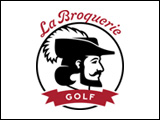The chair of Manitoba Pork Council reports a growing number of Canadian pork producers believe Ottawa needs to impose the same labelling rules on U.S. pork entering Canada as is required for Canadian product entering the U.S.
A delegation representing Manitoba Pork Council visited Minneapolis last week and is in Des Moines this week for a series of trade advocacy meetings and to discuss issues of common concern with their U.S. counterparts.
Pork Council chair Karl Kynoch says Canadian pork producers are increasingly concerned with the fact that, while U.S. Mandatory Country of Origin Labeling has made it more difficult to move Canadian product into the U.S., American product continues to flow freely into Canada.
Right now we’re going through the World Trade Organization to try to resolve the dispute of COOL and the impact that it’s had.
If we were to lose this case and those labelling restrictions stay in place some of our producers are starting to push for equivalency in labelling laws coming into Canada.
25 percent of the product that goes across the shelves in Canada comes out of the U.S.
They’ve managed to continually increase the imports of product into Canada.
Our producers are probably getting fairly concerned with that for when you spend a lot of money trying to promote your product you sometimes feel you’re just promoting it for the other guy.
But, if we ship product into the U.S. it’s got to meet all these Country of Origin Labelling laws yet product can come into Canada here with very little restrictions.
In fact it doesn’t even have to have the label on saying what country it came from when stores re-label it.
So that’s again a concern as the playing field gets a lot tougher for the Canadians shipping out than it does for product coming in.
Kynoch notes Canadian and U.S. producers have worked together to achieve equivalency on food safety and animal welfare laws but, when we see stricter labeling laws on one side of the border, it disrupts that equivalency.
He suggests the two industries need to be working together to compete on a world market.
Source: Farmscape.Ca



